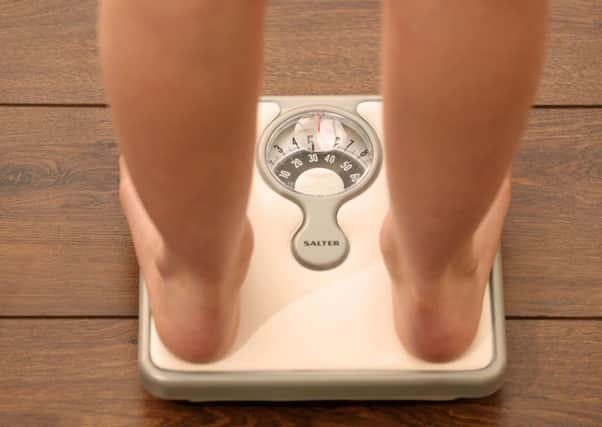Divorce could make your children fat, say experts


The study found that youngsters whose parents were divorced were 54 per cent more likely to be overweight or obese than children whose parents were married.
Researchers, writing in the journal BMJ Open, said the link was even stronger in boys, who were 63 per cent more likely to be overweight or obese if their parents had split up.
Advertisement
Hide AdAdvertisement
Hide AdThe researchers, from the Norwegian Institute of Public Health in Oslo, said the link could be due to a lower household income or an over-reliance on convenience foods.
The emotional fallout of a divorce could also explain the findings, they said.
The research was conducted on 3,166 eight-year-old pupils across 127 primary schools in Norway.
The children, who were participating in the “Norwegian child growth study” in 2010, were measured for their weight, height and waist circumference, and it was noted whether or not their parents were divorced.
The authors found that, overall, around one in five children was overweight or obese, according to international efinitions.
Overall, children with parents who had split were 54 per cent more likely to be overweight or obese and 89 per cent more likely to be obese than children whose parents remained married.
Boys were 104 per cent more likely to be obese if their parents were divorced.
However, the researchers said the results should be interpreted with caution. They said the study did not provide a basis for establishing cause and effect.
Advertisement
Hide AdAdvertisement
Hide AdThey wrote: “One can only speculate whether the changing structure of daily life has a large effect on the children of divorced parents. The loss of various resources, like the absence of one of the parents or the loss of a parental figure, usually the father, can explain the negative implications of a divorce.
“A consequence might be less time for domestic tasks such as cooking and reliance on more convenient, ready-to-eat foods. As processed foods tend to be higher in fat and lower in nutritional value, the result is an altered, less healthy diet.
“The household income and support from any non-custodial parent or the welfare state is often lower than in non-disrupted families. Consequently, fewer economic resources may be available for divorced parents, which might lead to cheaper and less healthy choices.
“Other mechanisms affecting children’s weight status through divorce, or a dissolved relationship, could be related to emotional stress.”
Tam Fry, from the Child Growth Foundation and National Obesity Forum, said be believed the link between obesity and divorce was down to comfort eating.
“Children when anxious turn to food as a way of overcoming the anxiety,” he said.
“They are so traumatised by their parents splitting that they don’t think, ‘Is this good for me or not?’.”